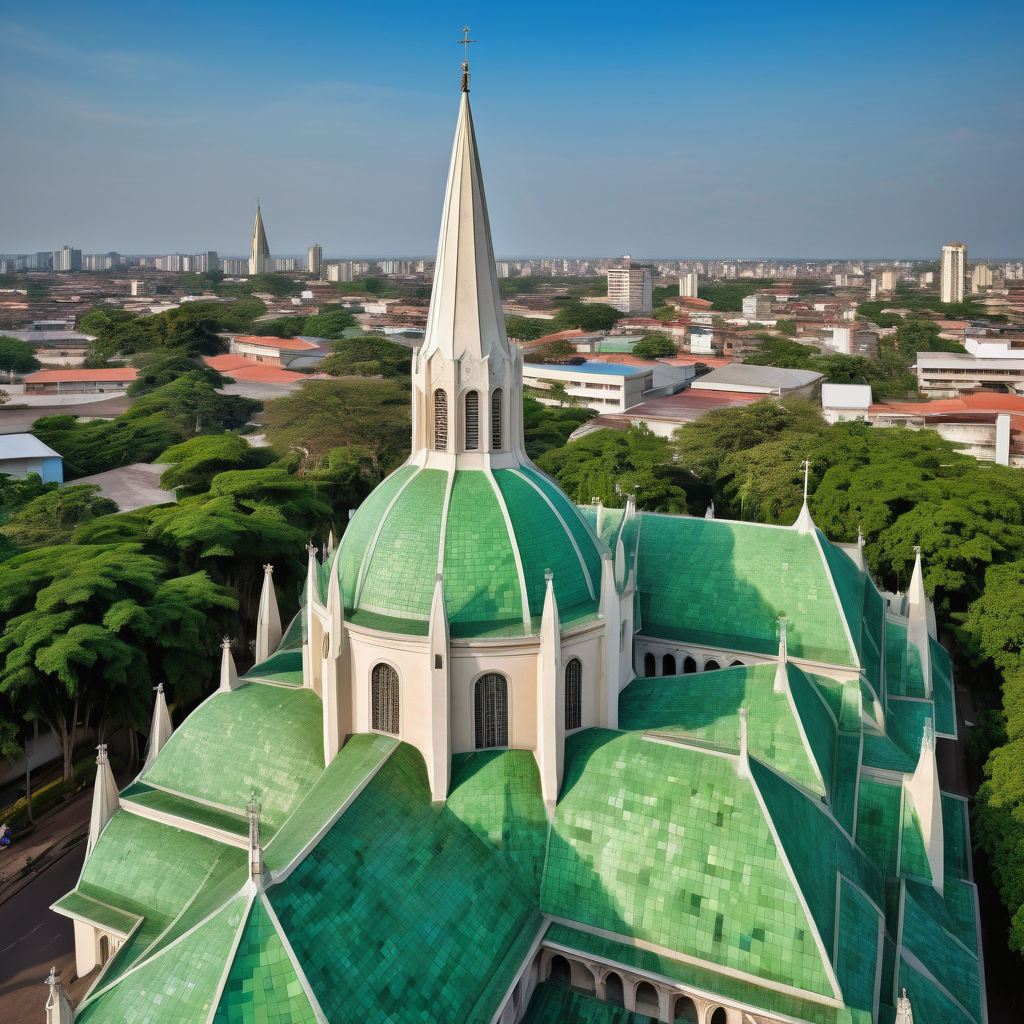Introduction to the Republic of Congo: A Cultural and Natural Haven
Explore Congo-Brazzaville: Rich Heritage and Diverse Landscapes

Introduction to the Republic of Congo (Congo-Brazzaville)
The Republic of Congo, also known as Congo-Brazzaville, is a country located in Central Africa. It is bordered by Gabon to the west, Cameroon and the Central African Republic to the north, the Democratic Republic of Congo to the east and south, and the Atlantic Ocean to the southwest. The capital city, Brazzaville, is situated on the Congo River directly across from Kinshasa, the capital of the Democratic Republic of Congo. Other major cities include Pointe-Noire, a vital economic and cultural hub due to its strategic coastal location. The cultural heritage of Congo-Brazzaville is rich and diverse, shaped by the influences of various ethnic groups such as the Kongo, Teke, and Mbochi. Traditional music and dance, particularly the vibrant rhythms of the Congolese rumba and Soukous, play a central role in the cultural identity of the country. The annual FESPAM (Pan-African Music Festival) held in Brazzaville attracts artists and audiences from across Africa, celebrating the continent's musical heritage. Additionally, Congolese cuisine, characterized by dishes such as saka-saka (cassava leaves) and poulet moambe (chicken in palm oil), reflects the agricultural and culinary traditions of the region.
Cross-national and Cross-cultural Understanding
People in Congo-Brazzaville generally exhibit a welcoming and open attitude towards other cultures, a characteristic that is fostered by the country's history of trade, migration, and colonial influence. Congolese society values cross-cultural understanding and actively engages in cultural exchanges, educational programs, and international partnerships that promote mutual respect and learning. Cultural exchanges are a significant aspect of life in Congo-Brazzaville. The country hosts various festivals and events that celebrate both local and international traditions. For example, the Festival Panafricain de Musique (FESPAM) not only showcases Congolese music but also brings together artists from different parts of Africa and the world, fostering cross-cultural dialogue through music. Additionally, the country's strong ties with France and other Francophone countries promote cultural exchanges in arts, education, and business. Educational programs in Congo-Brazzaville emphasize global awareness and cross-cultural understanding. Schools and universities incorporate multicultural perspectives into their curricula, encouraging students to appreciate and respect diversity. The Marien Ngouabi University in Brazzaville collaborates with international institutions to facilitate student and faculty exchanges, enriching the educational experience and fostering global connections.
Interactions and Social Dynamics
Typical interactions between Congolese people and foreigners are characterized by warmth, respect, and a strong sense of community. Social behaviors in Congo-Brazzaville reflect a blend of traditional customs and contemporary influences, emphasizing respect for others, hospitality, and communal living. Communication styles in Congo-Brazzaville are generally informal and friendly. French is the official language, making it easy for tourists and expatriates to communicate. Additionally, various local languages such as Lingala, Kituba, and Kikongo are widely spoken. This multilingualism facilitates interactions and helps bridge cultural gaps between locals and visitors. Cultural norms in Congo-Brazzaville place a strong emphasis on respect for elders, community involvement, and a relaxed approach to time. These norms create a welcoming and inclusive atmosphere for foreigners, who often find it easy to adapt to the local way of life. Public displays of affection are generally limited, in line with traditional and religious customs, but social gatherings and communal activities are vibrant and inclusive.
Views on Dating and Relationships
Attitudes towards dating and relationships with foreigners in Congo-Brazzaville are generally open and accepting. Congolese people recognize the opportunities for cultural exchange and personal growth that such relationships can bring. However, cultural expectations and traditions do play a role in shaping these views. Family involvement is significant in relationships in Congo-Brazzaville, with elders often playing a crucial role in the approval process. Traditional customs emphasize respect, patience, and the gradual building of trust in relationships. While modern dating practices influenced by global trends are becoming more common among younger generations, traditional values still hold sway in many communities.
Marriage and Family
Marrying a foreigner in Congo-Brazzaville involves navigating both legal and social considerations. Legally, the country has clear regulations governing marriage, including residency requirements and the need for proper documentation. Socially, cross-cultural marriages are generally accepted, though couples may face challenges related to cultural differences and integration. Familial acceptance is a key factor in cross-cultural marriages. Congolese families can be protective, and gaining their approval is often essential for the relationship's success. However, the diverse cultural landscape of Congo-Brazzaville means that many families are already familiar with and accepting of different cultural backgrounds, which can facilitate smoother integration for foreign spouses. Trends in cross-cultural marriages reflect Congo-Brazzaville's open and inclusive society. Many Congolese who travel abroad for education or work form relationships with individuals from various cultures, bringing back diverse customs and traditions that enrich the local community.